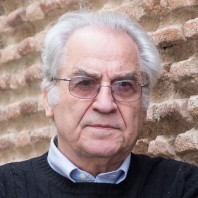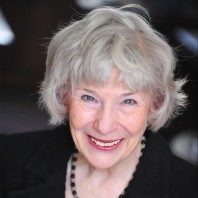
ART AND REVOLUTION go hand in hand. Since time immemorial, the arts have given voice to the issues and themes that have spurred revolutions. Revolutions have been fueled by contributions from visual artists, musicians, playwrights, and literature. And the arts themselves have experienced major conceptual and technical revolutions that have affected how they address themselves not only to the worlds of which and for which they are created, but also to posterity and its own revolutions. Revolution can denote an attempt to seize and wield power, or it can refer to a set of conceptual or political changes that change the lives and works of contemporaries and posterity. Either way, it is difficult to escape the notion that the arts and revolution have historically intersected in profound and profoundly symbiotic ways and continue to do so today.
BROWN SYMPOSIUM XXXVIII will explore these intersections. In November 2016, a Keynote Colloquium featured three distinguished speakers on the theme of Language and Revolution: How Words Change the World. In March 2017, we feature five distinguished guest speakers, a performance of an acclaimed play about the sexual revolution in the Victorian era, the world premiere of a new composition inspired by art and revolution, and a gallery exhibit featuring an internationally acclaimed revolutionary conceptual artist. There will also be two public salons on the prompt of “art and revolution” – opportunities for you to converse publicly with our guests about the arts, revolution, the changes their intersection has wrought historically, and those that continue today.
Included:
- Five Guest Speakers
- Two Gallery Exhibits
- Theatre Performance
- New Music World Premiere
- Schedule of Events
Wednesday, March 1
7 p.m. Inaugural performance: Sarah Ruhl’s “In the Next Room, or the vibrator play”
Directed by Kristen Rogers, Adjunct Assistant Professor, Austin Community CollegeWelcome from Alisa Gaunder, Dean of the Faculty, Southwestern University
and symposium director John Michael Cooper, Margarett Root Brown Chair in Fine Arts
Roundtable discussion featuring
Eileen Cleere, Professor (English)
Sergio Costola, Associate Professor (Theatre)
Kristen Rogers, Director- Admission is free, but seating is limited. Early arrival is recommended.
- Please note this production contains adult content and nudity.
Thursday, March 2
8 a.m. Coffee
9 a.m. Opening Session
Welcome from Edward B. Burger, President of Southwestern University and John Michael Cooper, Margarett Root Brown Chair in Fine Arts9:45 a.m. Presentation 1: Revolution in a Suitcase. How Women Changed the Face of Theater and How Theater Saved My Life
by Domnica Radulescu
Introduction by Erika Berroth10:45 a.m. Break
11 a.m. Presentation 2: Creation Unbound: The Revolution from Matter to Stuff
by Barbara M. Stafford
Introduction by Patrick HajovskyNoon Lunch
2 p.m. Presentation 3: Civil Rights Music: The Soundtracks of the Civil Rights Movement
by Reiland Rabaka
Introduction by Maria Lowe3 p.m. Book signing and break
3:30 p.m. World premiere performance of “Revolve/Retract”
by Jason Hoogerhyde
with introductory remarks by the composer
Performed by the line upon line Percussion Ensemble
Adam Bedell, percussion
Cullen Faulk, percussion
Matthew Teodori, percussion4 p.m. Salon 1: Conceptual Revolutions and the Arts
Introduced by Michelle Hershberger
Moderator: Laura Hobgood
Conversants: Luis Camnitzer, Domnica Radulescu, Barbara M. Stafford, Reiland Rabaka, Patrick Hajovsky, Kathleen Juhl, Davi Johnson Thornton, Megan Frisque, Norma Aguirre Gaines, Keara Hudler, Caleb MartinFriday, March 3
8 a.m. Coffee
8:30 a.m. Presentation 4: In Search of the Fourth Dimension: Becoming an Artist in an Age of Revolution
by James von Geldern
Introduction by Eric Selbin9:30 a.m. Presentation 5: Revolution Begins in the Heart and Mind: Theatre’s Role in the Fall of the Wall
by Felicia Hardison Londré
Introduction by Desiderio Roybal10:30 a.m. Break
10:45 a.m. Salon 2: Political Revolution and the Arts
Introduced by Abby Garcia
Moderator: Kim Smith
Conversants: Luis Camnitzer, Felicia Hardison Londré, James von Geldern, Eric Selbin, Kerry Bechtel, Melissa K. Byrnes, Laura Sewell, Jennifer Smull, Wilhelmina Watts, Esteban Woo Kee12:15 p.m. Preview of Brown Symposium XXXIX (2019)Laura Hobgood
Closing Announcements12:45 p.m. Closing Reception for “Luis Camnitzer: Unbound”Curated by Victoria Star Varner
With Introductory remarks by the artist
The Sarofim School of Fine Arts Gallery
(Food and drink included.) - Guest SpeakersSee the Reading List for a selection of Guest Speakers’ work.

Luis Camnitzer is an internationally renowned German-born Uruguayan conceptual artist, whose work explores issues such as institutional critique, repression, and social injustice. An emeritus member of the College at Old Westbury in the State University of New York, Professor Camnitzer is a two-time recipient of a Guggenheim Fellowship and is the author of three major books. He has work in the permanent collections of the Museum of Modern Art, the Metropolitan Museum of Art, New York; the Whitney Museum of American Art, New York; the Solomon R. Guggenheim Museum, New York; and elsewhere in Buenos Aires, Houston, London, Madrid, and Zurich, among others. His work is on display for Brown Symposium XXXVIII in the gallery exhibit Luis Camnitzer: Unbound.

Felicia Hardison Londré is Curators’ Distinguished Professor of Theatre at the University of Missouri-Kansas City. Dr. Londré is a theater historian specializing in American, French, and Russian theatre, as well as Shakespearean dramaturgy. The author of fourteen books, she is also recipient of numerous Theater honors, including induction into the College of Fellows at the Kennedy Center in Washington, D.C., and two prestigious national awards for outstanding teacher in theater in higher education. She is well known internationally as a speaker, having lectured in Beijing, Brussels, Moscow, Nanjing, Tokyo, Osaka, Paris, Rouen, and Venice, and given a lecture tour of Hungary.

Reiland Rabaka is Professor and Chair of the Department of Ethnic Studies at the University of Colorado, Boulder. He also has faculty affiliations with the Department of Women & Gender Studies, Humanities Program, Graduate Program in Critical Theory, School of Education, College of Media, Communication & Information, and College of Music at the University of Colorado, Boulder. His research areas and teaching interests are in African Studies, African American Studies, and Caribbean Studies. He is the author of more than fifty scholarly articles and book chapters, as well as more than a dozen books including: Du Bois’s Dialectics; Africana Critical Theory; Against Epistemic Apartheid: W.E.B. Du Bois and the Disciplinary Decadence of Sociology; Forms of Fanonism: Frantz Fanon’s Critical Theory and the Dialectics of Decolonization; Concepts of Cabralism: Amilcar Cabral and Africana Critical Theory; The Negritude Movement; Hip Hop’s Inheritance; Hip Hop’s Amnesia; and The Hip Hop Movement. Rabaka’s research has been recognized with several awards, including funding from the National Endowment for the Humanities, the National Endowment for the Arts, the National Science Foundation, the National Museum of African American History & Culture, the National Museum of American History, the Smithsonian Institution, the Eugene M. Kayden Book Award, the Cheikh Anta Diop Book Award, and the National Council for Black Studies’ Distinguished Career Award. He has conducted archival research and lectured extensively both nationally and internationally, and has been the recipient of numerous community service citations, distinguished teaching awards, and research fellowships. Rabaka’s cultural criticism, social commentary, and political analysis has been featured in print, radio, television, and online media venues such as NPR, PBS, BBC, CNN, ABC, NBC, CBS, MTV, BET, VH1, The Huffington Post, and USA Today, among others. He is also a published poet, spoken-word artist, and musician.

Domnica Radulescu
Domnica Radulescu is the Edwin A. Morris Professor of French and Italian literature, of Women’s and Gender Studies and Medieval and Renaissance Studies at Washington and Lee University. Radulescu received the 2011 Outstanding Faculty Award from the State Council of Higher Education for Virginia, and is a Fulbright scholar. She is the author of three critically acclaimed novels: Country of Red Azaleas(Hachette 2016), Black Sea Twilight (Doubleday 2010 & 2011) and Train to Trieste (Knopf 2008 & 2009). Train to Trieste has been published in thirteen languages and is the winner of the 2009 Library of Virginia Fiction Award. She has authored, edited and co-edited nine books on French and European novel, theater, exile and representations of women, of which her most recent ones are Women’s Comedic Art as Social Revolution and Theater of War and Exile. Two of her plays, The Town with Very Nice People (2013) and Exile Is My Home (2014) were finalists in the Jane Chambers Playwriting competition. The latter play was produced for a four week run at the Theater for the New City in April/May 2016. The play was nominated for the New York Innovative Theater Award and the production won the Outstanding Performance by an Ensemble Cast from the Hispanic Organization of Latin Actors. Radulescu is the founding director of the National Symposium of Theater in Academe. She is working on her fourth novel, My Father’s Orchards.

Barbara M. Stafford, recipient of the inaugural Media Art Histories Award for Contributions to the Field, is currently based in Atlanta, Georgia. She has served as Distinguished University Visiting Professor at the Georgia Institute of Technology and Distinguished Critic in the College of Architecture at the same institution; she is William B. Ogden Distinguished Service Professor, emeritus, at the University of Chicago.Professor Stafford’s work explores the intersections between the visual arts and the physical and biological sciences from the early modern to the contemporary era. Her current research charts the revolutionary ways the neurosciences are shaping our fundamental assumptions about perception, sensation, emotion, mental imagery, and subjectivity. She is the author of ten books and more than seventy-five articles on these and other.

James von Geldern is Professor of Russian and International Studies and Chair of Russian Studies at Macalester College, where he teaches courses on Soviet culture and international law. He is author of Bolshevik Festivals, 1917-1920, co-author of Mass Culture in Soviet Russia: Tales, Poems, Songs, Movies, Plays and Folklore, 1917-1953, and Entertaining Tsarist Russia: Urban Entertainments, 1798-1917.He is also a practicing attorney, representing asylum seekers pro bono in collaboration with the Advocates for Human Rights, of Minneapolis, Minnesota.
- Contributors
Kerry Bechtel is Associate Professor in the Department of Theatre, specializing in Costume and Makeup Design, Costume Technology and the History of Costume and Fashion. In addition to her academic work, Professor Bechtel is a professional costume designer. Her work has been featured at Main Street Theater in Houston, Texas, Unity Theatre in Brenham, Texas, The Alpine Theatre Project in Whitefish, Montana, Zilker Theatre in Austin, Texas and many other other companies throughout the region and country.
Melissa K. Byrnes is Associate Professor and Chair of History at Southwestern University. She has been teaching European and World history at SU since the fall of 2008. This year, she has also been named a Social Justice Fellow on campus. Her historical research focuses on issues of migration, Islam, empire, activism, and human rights. She is finishing a book on post-1945 community activism for North African rights and welfare in the suburbs of Paris and Lyon. She is also working on the development of human rights activism by Portuguese groups in Paris in the 1960s. She has written a number of newspaper and online pieces connecting history with current events.
Eileen Cleere is the author of Avuncularism: Capitalism, Patriarchy and Nineteenth-Century English Culture (Stanford University Press, 2004) and The Sanitary Arts: Aesthetic Culture and the Victorian Cleanliness Campaigns (Ohio State University Press, 2014). Her articles on a variety of nineteenth-century topics have appeared in Novel, Representations, and English Literary History, and her most recent essay on Mormon polygamy and Victorian sensation fiction appeared in Victorian Studies(2015). Cleere’s new book project is a study of post-Freudian psychology and the rise of adolescent fiction. She is Professor of English at Southwestern University.
John Michael Cooper (Symposium organizer) is Professor of Music and holder of the Margarett Root Brown Chair in Fine Arts at Southwestern University. He is the author of Historical Dictionary of Romantic Music(2013), Mendelssohn, Goethe, and the Walpurgis Night (2007), and Mendelssohn’s “Italian” Symphony (2003), as well as editor of six editions of music by Mendelssohn for the critically acclaimed Bärenreiter Urtext series. He has authored articles in English and German on subjects ranging from Baroque performance practice to nineteenth- and twentieth-century music and aesthetics and music and musical life at the Utopian community of La Réunion (today Dallas, Texas). He joined the Southwestern University faculty in 2006. He is currently working on a book about the music and musical lives of various “Utopian” societies in the U.S. and U.K. in the long nineteenth century.
Sergio Costola (Dramaturg, “In the Next Room”) is Associate Professor of Theatre at Southwestern University, where he teaches Theatre History, Dramatic Literature, and Critical Studies. He holds a PhD from UCLA and a BA Magna Cum Laude from the University of Bologna in his native Italy. He previously taught at UCLA and Loyola Marymount University. He specializes in Medieval and Renaissance Theatre and African American Theatre, and has published essays and presented papers at various conferences on both topics.
Megan Frisque is Associate Vice President for Alumni and Parent Relations at Southwestern University. She has worked in higher education for 15 years, with positions both in student affairs and university relations. In her current role, she sets and implements the strategic direction for the engagement of alumni and parents to solicit their investments of time, talent, and financial resources in the University. Megan received her bachelor of science degree in psychology from the University of Kentucky and her master of science degree in college student personnel from Miami University (Ohio).
Norma Aguirre Gaines is Assistant to the Vice President for Finance and Administration at Southwestern University. She has worked for Southwestern since 1981, holding positions in the Sarofim School of Fine Arts, the Office of the President, and the Office of the Provost before assuming her current duties. Initially a Music major, in 2008 she attained a B.A. in Art History while working full-time. In 2007, she presented an invited lecture at The New School in New York City on the paintings of Bob Dylan. During her time at Southwestern, she has served on search committees, the Strategic Planning Committee, and participated in university governance. In 2001, she was elected the initial Chair of the newly-formed Staff Affairs Council and published “The Legacy of Our Connections” in Justice for All (Southwestern University, 2001). She received the Pearl A. Neas Service Award from the Alumni Association and the Joe S. Mundy Award for outstanding service from the University.
Patrick Hajovsky is Associate Professor of Art History in the Department of Art and Art History at Southwestern University, where he also served as Chair of Latin American and Border Studies from 2013 to 2016. He received a B.A. in Anthropology at the University of North Texas and in Art History at Tulane University before completing his M.A. and Ph.D. in Art History at the University of Chicago. Professor Hajovsky’s research focuses on pre-Columbian cultures of Mesoamerica and the Andes as well as indigenous artistic traditions from the Viceroyalties of New Spain and Peru. His book, On the Lips of Others: Moteuczoma’s Fame in Aztec Monuments and Rituals (University of Texas Press, 2015), examines how Moteuczoma’s name in Aztec monuments conveyed his divine presence according to indigenous concepts of fame. His other publications consider transformations of Moteuczoma’s image and reputation after the Conquest by the hands of European and Mexican historians and artists. This spring, Professor Hajovsky will be a scholar in residence at the Getty Research Institute in Los Angeles to work on a publication about Aztec luxury arts, made of feathers, gold, and precious stones, from their production and exchange to their display and final interment.
Laura Hobgood (Moderator) is Professor of Religion and Environmental Studies and holder of the Paden Chair. Her areas of research and teaching are critical animal studies, history of Christianity, ecofeminist studies and animals and religion. Her most recent books are A Dog’s History of the World: Canines and the Domestication of Humans and Holy Dogs and Asses: Animals in the History of Christianity. When she’s not teaching and writing, Dr. Hobgood is involved with dog rescue efforts and environmental sustainability activism.
Jason Hoogerhyde (Composer, “Revolve/Retract”) is Associate Professor of Music Theory and Composition at Southwestern University. His works for orchestra, opera, chamber ensembles, and voice have been presented throughout the United States, Europe and Asia by such performers as Decadanse (France), COMA (UK), the N[ex]t Saxophone Quartet (Latvia), Ramon Acoymo (Philippines), Howard Niblock (China), Nobuko Asano (Japan), Chorus Austin (TX), and the Austin Civic Orchestra (TX), and at many festivals and concert series, including The Kennedy Center Millennium Series (DC), Weill Recital Series (NYC), MusicX (OH), the Grandin Festival (OH), Blue Lake Summer Arts Festival (MI), University of Nebraska-Kearney’s New Music Festival V, College Music Society, and Society of Composers, Inc. He has been composer-in-residence at the Ucross Foundation (WY), the Dorland Mountain Colony (CA), and the Cincinnati Public Schools (on a Meet-the-Composer grant).He studied composition with Allen Gimbel, Joyce MeKeel, Lukas Foss, Allen Sapp, Darrell Handel, and Ricardo Zohn-Muldoon. Between 1997 and 1999 he served as classical music critic for the Cincinnati Enquirer. Prior to that appointment, he taught at the University of Cincinnati and Lawrence University.
Keara Hudler is a junior Environmental Studies major at Southwestern University with a double minor in Economics and Spanish. She serves as the Student Sustainability Coordinator for the University and plans to attend graduate school for environmental policy and sustainable urban development.
Kathleen Juhl is Professor of Theatre at Southwestern University, where she teaches voice and movement, acting, performance studies, theatre for social change, and feminism and performance. Dr. Juhl holds an M.A. in Performance Studies from the University of Illinois at Urbana-Champaign, an M.F.A. in acting and directing from the University of North Carolina at Greensboro, and a Ph.D. in Performance Studies from the University of Texas at Austin. She is interested in acting pedagogy and co-edited a book, Radical Acts: Theatre and Feminist Pedagogies of Change. She is a certified Alexander Technique teacher, and is currently co-editing a book, Galvanizing Performances: The Alexander Technique as a Catalyst for Excellence. She has performed professionally in regional theatres in the Midwest and Southeast and in Austin. She has regularly performed as a narrator for concerts with Southwestern University and Austin music ensembles.
line upon line Percussion Ensemble (“Revolve/Retract”) seeks new ways for percussion instruments to advance contemporary art music by performing newly commissioned works alongside existent masterpieces, for adventurous and curious listeners. To date, the Austin-based trio has commissioned and premiered fifteen new works, four of which appear on their full-length, self-titled album. The group’s in-house creative project, seeing times are not hidden, won top prize at the 2011 Music in Architecture-Architecture in Music Symposium at the University of Texas at Austin. The work involves over 1000 glass, metal and hardwood chimes suspended from the three arches of Waller Creek Bridge. In April 2013, line upon line gave the North American premiere of Hugues Dufourt’s massive evening-length masterpiece, Erewhon, which enlists the use of nearly 150 percussion instruments. The group’s self-presented concert series, now in its third year, was recently listed as one of the Top 10 Dance/Classical Music Treasures of 2014 by the Austin Chronicle. Its 2015-2016 opener, soft, received an honorable mention in the most recent version of the award. In 2013 and 2014, the trio was named “Best Ensemble” by the Austin Critics’ Table and is currently a member of the Texas Commission on the Arts Touring Roster. The Austinist called line upon line “the premier new music percussion ensemble in Texas and the South” and the Austin American-Statesman considers the group “a riveting, always-surprising and delightful trio.”The ensemble consists of its three original members: Adam Bedell, Cullen Faulk and Matthew Teodori.
Caleb Martin is a senior at Southwestern University currently finishing a Bachelor’s degree of Music in Music Education. Caleb is the principal clarinetist of the Southwestern University Wind Ensemble, Orchestra, and member of the SU Jazz Band, Opera Theatre, Austin Civic Orchestra, and in the Small College Intercollegiate Band in 2015 during the CBDNA. He was a featured soloist in the Southwestern Soloist concert and one of three winners of the SU Concerto Competition for the year of 2017. Martin has performed with various community groups such as pit orchestra for Musical Theater productions where he performed on multiple instruments for the same concert. In addition to his performances, he has also been teaching in a private studio in Georgetown for the past 3 years and is currently teaching elementary music at a local private school. He also serves as Co-President of the Delta Omicron National Music Service Fraternity.
Kristen Rogers (director, “In the Next Room”) holds an MFA in Acting from the Actors Studio Drama School, and has worked as an actor, director, and teacher in New York, Los Angeles, and the Chicago area. Her most recent work as a director has been collaborating on a new work by Jaston Williams (of Greater Tuna fame) starring Jaston and well-known actress Lauren Lane (best known for her role on TV’s The Nanny). A Wolverine Walks into a Bar (Conversations over Ice) has played at the Classic Theatre of San Antonio, at The Grand 1894 Opera House in Galveston, and at Stateside at the Paramount in Austin. She is also currently an advanced doctoral candidate in Fine Arts (Theatre) at Texas Tech University. Her research focuses on theatre history in the United States, primarily from mid-twentieth century to present, and the relationship between stage and cinema, particularly from a feminist standpoint. Her work has been published in New England Theatre Journal,Theatre History Studies, and Texas Theatre Journal.
Eric Selbin is a political sociologist whose primary research interests are revolutions and related forms of collective socio-political behavior (resistance, rebellion, social movements) as well as International Relations Theory. Selbin is part of the “Fourth Generation” theorists of revolution and his most well-known work, which has been translated into Arabic, German, Spanish, and Turkish and published in India, is Revolution, Rebellion, Resistance: The Power of Story (2010). Much of his work has focused on Latin America and the Caribbean, and his Modern Latin American Revolutions (1993; 1999) has frequently been featured as a textbook in courses in Latin American Studies and contentious politics. His book with Pace University Professor Meghana Nayak, Decentering International Relations, has been part of the decolonial turn in International Relations theory. Selbin holds a Ph.D from the University of Minnesota and is Professor of Political Science at Southwestern University, where he has held appointments as Brown Distinguished Professor (1999-2003), University Scholar (2006-14), and since 2014 the Lucy Kind Brown Chair, one of six endowed Brown Chairs at Southwestern University. In 2013, Selbin was appointed a research fellow at the Teresa Lozano Long Institute of Latin American Studies (LLILAS) at the University of Texas at Austin, and he has held appointments at Sweden’s Umeå University (2003-2006) and at the Tallinn Postgraduate Summer School in Social and Cultural Studies (2012). His current book projects include a co-authored text with Professor Daniel Ritter of Stockholm University on the global resurgence of revolution, and a monograph on stories in international relations.
Laura Sewell has been serving as the Manager of the Sarofim School of Fine Arts Administration since July of 2015. Prior to joining Southwestern, Laura served as the Business Manager of CentralTrak, an artist residency program at The University of Texas at Dallas. Highlights of her work have been serving as part of the Company Management teams for the STOMP company, Las Vegas; International Festival of Arts and Ideas, New Haven; Hartford Stage Company, Yale School of Drama, and Yale Repertory Theatre. Laura is a proud graduate of Southwestern University with a Bachelor of Arts in Theatre and Sociology and a Master of Fine Arts in Theatre in Directing from The University of Houston.
Kim Smith (Moderator) is Professor of Art History at Southwestern University. She holds a PhD in the History of Art from Yale University, and a BA in Art History from Duke University. Her research focuses on the art of early twentieth-century Germany and Austria, especially Expressionism, and the intellectual history of art history. Smith’s book, Between Ruin and Renewal: Egon Schiele’s Landscapes, was published by Yale University Press in 2004, and she is editor of the critical anthology The Expressionist Turn in Art History,published by Ashgate in 2014. She has published on a range of topics in German and Viennese visual culture, including Franz Marc’s painted postcards, Alois Riegl’s impact on modern art practice, and the Jewish patrons of Wiener Werkstätte fashion. Most recently, her essay on the role of Maria Marc in the construction of Expressionist modernism is forthcoming in the anthology, Marianne Werefkin and the Women Artists in Her Circle. At Southwestern, Smith teaches courses on art of the modern era from the 18th to 20th centuries, theories and methods of art history, and feminism and art history.
Jennifer Smull is the Assistant Director of Academic Success at Southwestern University. In this position, Jennifer works to ensure equal access for students with disabilities on campus. She received her Masters of Education degree in Special Education from the University of Texas at Austin, with a concentration in Learning Disabilities and Behavioral Disorders. Before arriving at Southwestern in 2015, Jennifer worked in various student support services roles at St. Edward’s University and the University of Texas at Austin. She also studied Musicology at Indiana University and the University of Texas at Austin and plays cello in her spare time.
Davi Johnson Thornton, Department Chair of Communication Studies at Southwestern University, works at the intersections of rhetorical and cultural studies. She has published on popular media and neuroscience, pharmaceutical marketing, and representations of mental health and illness in television and advertising. She also publishes and teaches on the African American civil rights movement. She regularly teaches a course on the rhetoric of civil rights, and has published articles on Huey P. Newton, the Meredith March, the sit-in movement outside of the South, and the visual media strategies of Martin Luther King, jr. She has published articles on topics ranging from visual culture and the Civil Rights movement, through mental illness, the pedagogy of health and medicine, to memes in media culture. Her book Brain Culture: Neuroscience and Popular Media was published by Rutgers University Press in 2013.
Victoria Star Varner (Curator, “Luis Camnitzer: Unbound”) is Professor of Art, Paideia professor, Director of the Fine Arts Gallery, and Chair of Studio Art in the Art and Art History Department at Southwestern University. Her paintings, drawings and prints range from classically-inspired figural work to lyrical, process-driven abstractions. They have been in over one hundred exhibitions nationally and internationally, including venues such as the Awagami International Mini Print Exhibition in Yoshinogawa City, Japan, the Flinders Museum of Art, Australia; the Ilam School of Art, New Zealand; the Arlington Museum of Art, Texas; Grunwald Gallery, Indiana University; the Nelson Gallery - Atkins Museum, Kansas City, Missouri; and many university galleries both domestic and international. She has been in residencies at the Vermont Studio Center and the Camnitzer Studio in Valdottavo, Italy and has been awarded over twenty grants and a Mundy Fellowship. She received her M.A. degree in painting from the University of Missouri, Columbia, an M.F.A. degree in printmaking from Indiana University, Bloomington, and participated in workshops at the Tamarind Institute, Albuquerque, and Crown Point Press, San Francisco. As a gallerist, she has been curator for over forty exhibitions comprising artists of international scope.
Wilhelmina Watts is a senior at Southwestern University double majoring in Art History and English, with an interest in post-colonial and trauma theory. She is currently a consultant and assistant director of the Debby Ellis Writing Center and hopes to pursue post-graduate work in information accessibility and criminal justice reform.
Esteban Woo Kee is a junior at Southwestern University. He was born in El Paso, Texas and grew up both in the US and on his father’s ranch in La Junta, Chihuahua, Mexico. He is a History major and is minoring in Race and Ethnicity Studies. Woo Kee’s undergraduate studies have revolved around understanding the history of colonialism and its long-term effects, especially in the US and Latin America. He plans on going to law school and pursuing a career as a civil litigator.
- Gallery Exhibits
January 31 - March 6
Luis Camnitzer: Unbound
More Information
Sarofim School of Fine Arts GalleryFebruary 10 - March 26
The Cuzco Revolution in Painting
More Information
Featuring Peruvian artists Richard Peralta and Edwin Quispecuro
Georgetown Art Center - Keynote Colloquium
How Words Change the World
F.W. Olin Building, Room 105
Southwestern University
November 4, 2016, 2:30-5:30 p.m.Participants

Flavia Company, born in Buenos Aires, Argentina, is author of more than a dozen novels, including Saurios en el asfalto, Luz de hielo, La mitad sombría, and The Island of Last Truth. Her most recent novel, HARU, set in Asia, was published in March of 2016. She received her degree in Spanish Philology from Universidad Autònoma de Barcelona, and works as a musician, translator, journalist, and professor of short stories at l’Escola d’Escriptura del Ateneu Barcelonés and at the University Pompeu Fabra. She has also published several volumes of short stories, including Con la soga al cuello and Trastornos literarios. Her poetry has been published in various magazines and she has published a narrative poem called Volver antes que ir. Her works have been translated into various languages, such as Dutch, English, French, German, Italian, and Portuguese.

K. David Harrison is a linguist, author and activist for the documentation and preservation of endangered languages teaching at Swarthmore College and affiliated with the National Geographic Society. His research focuses on the Turkic languages of central Siberia and western Mongolia. He co-starred in Ironbound Films’ Emmy-nominated 2008 documentary film “The Linguists.” He serves as director of research for the non-profit Living Tongues Institute for Endangered Languages. Harrison has done fieldwork on endangered languages in Siberia and Mongolia Tuvan, Tsengel Tuvan, Tofa, Ös, Tuha, Monchak, Munda, and also in Paraguay, Chile, Papua New Guinea, and India. He specializes in phonology, particularly vowel harmony, and in the study of language endangerment, extinction, and revitalization.

Farhana Qazi is an American scholar and public speaker. She has spent the past fifteen years studying women in war, conflicts in the Islamic world, and radical ideologies and movements. Farhana has rejoined Babylon as the Program Director for Women and Youth Services. In this role, Farhana will initiate and lead projects in the Muslim world to enable families to counter radicalization at home and within their communities. She is also a Senior Fellow at the Center for Advanced Studies on Terrorism (CAST), where she conducts independent studies on radical women. She is the author of Secrets of the Kashmir Valley, a human-interest story focused on the female survivors of war (Pharos, Spring 2016). Her second book takes an inside look at radical Islam and offers solutions for greater engagement, education, and training to vulnerable populations. (Berrett-Koehler, Winter 2016) As an expert, Farhana appears regularly in mainstream media: CNN Headline and International News, BBC Television and Radio, Public Broadcasting Service, National Public Radio, Fox News, C-Span, Bloomberg, ABC News, Canadian national television, Voice of America, Al-Jazeera, The Daily Ledger Show and more. Farhana is the recipient of the 21st Century Leader Award, presented by the National Committee on American Foreign Policy in New York for her training and service to the U.S. military, and she received the Humanitarian Award from Southwestern University, her alma mater, for her research on women in war.














